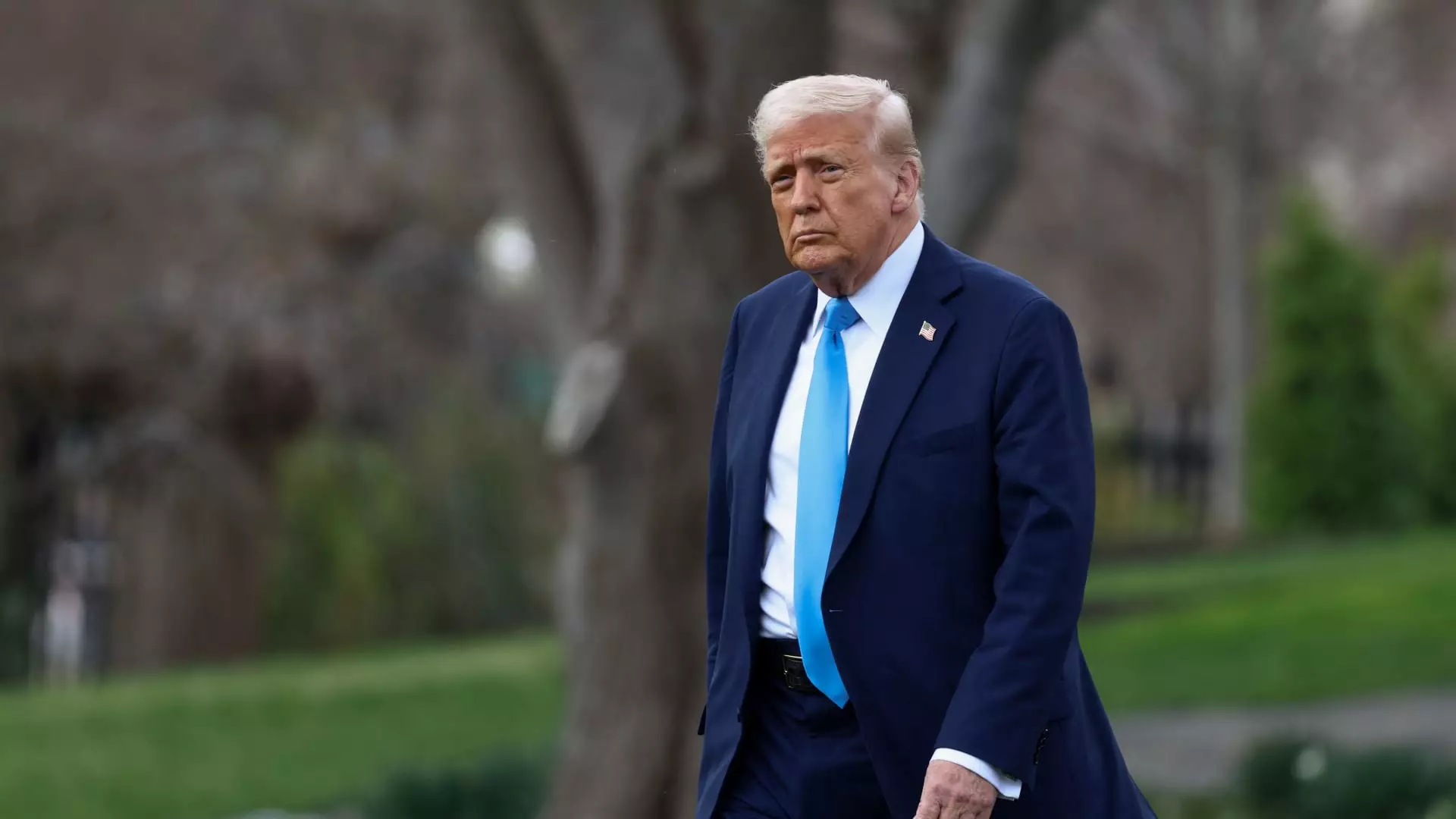In a shocking turn of events, President Donald Trump has taken the audacious step of expressing visceral anger toward Russian President Vladimir Putin. Reflective of a broader disarray in U.S. foreign policy, this raises critical questions about the role of emotional responses in diplomacy. When one of the world’s most powerful leaders finds himself “very angry” and “pissed off” over another leader’s remarks about a third country’s president, we must ask: what does this say about American leadership in a turbulent geopolitical landscape?
Trump’s outburst was triggered by Putin’s derogatory comments aimed at Ukrainian President Volodymyr Zelenskyy, who has already been under immense pressure as his nation grapples with ongoing conflict. On the surface, it may seem straightforward to condemn the Russian leader’s calls for a transitional government in Ukraine; however, Trump’s personal investment in the anger appears to overshadow any constructive critique of Putin’s blatant attempts to undermine Ukraine’s sovereignty. This dichotomy underscores a worrying tendency in international relations—where emotion too often eclipses reasoned discourse.
A Tariff Bombshell and an Uncertain Strategy
In the same news cycle, Trump announced his intention to impose hefty tariffs on Russian oil if a resolution to the conflict remained elusive, a move steeped in economic protectionism that may ultimately do more harm than good. Stating he would apply “a 25% tariff on all oil,” Trump appears to wield economic reprisal as his primary tool for foreign policy, reminiscent of a bully on a playground more concerned with flexing muscle than building alliances.
While sanctions and tariffs can be powerful mechanisms of deterrence, their effective application requires coherent strategy and clarity of purpose. Here, Trump’s remarks feel reactionary, wielded more for shock value than as components of a well-planned diplomatic offensive. Would not a more collaborative approach with allies yield better results than a punitive measure that could escalate tensions? It seems that Trump’s embrace of punishment leaves little room for the sophisticated diplomacy that modern international relations often necessitate.
The Flawed Premise of Blame in Diplomacy
Trump’s fixation on assigning blame to Russia while fluctuating between admiration for Putin and disdain for Zelenskyy poses another unsettling reality—his understanding of accountability in the international arena. By implying that credibility can be dictated by individual leaders rather than stemming from the will of the people they represent, this rhetoric diminishes the profound complexities of national sovereignty and democracy. When Trump states, “if I think it was Russia’s fault … I am going to put secondary tariffs,” accountability becomes an arbitrary concept, tailored to fit a narrative rather than a principle of governance.
Moreover, his prior criticisms of Zelenskyy, painting him as a dictator mismanaging a war, reveal a dangerous tendency to overlook the broader context of Ukraine’s struggle. Such statements not only undermine Zelenskyy’s legitimacy but also embolden aggressors. A responsible leader should seek to reinforce democratic values and sovereignty rather than perpetuating the very narratives that threaten them.
Bombastic Rhetoric Meets Nuclear Threats
Adding further to this precarious atmosphere, Trump directed bombastic threats toward Iran, promising “the likes of which they have never seen” if they refuse to negotiate over their nuclear program. This leverages the language of conflict instead of fostering dialogue—a signature of Trump’s foreign policy that often prioritizes bravado over diplomacy. His suggestions of bombing as a negotiating tactic not only strain relations but also expose a risky gambit that could embroil the U.S. in yet another costly conflict.
While U.S. officials are in talks with Iranian counterparts, Trump’s approach seems decidedly counterproductive, veering from the collaborative dialogues essential for lasting peace and instead veering into a cycle of fear and aggression. In a world already fraught with tension, the ramifications of such threats echo ominously, reflecting a leadership style that chooses power displays over mutual engagement.
In a political climate where reasoned discourse is vital for fostering international harmony, it appears that America’s voice has become increasingly shrill rather than measured—a cacophony rather than a concerted effort toward peace. The paradox of anger wielded as a diplomatic tool reveals a troubling trend: the increasingly fragile state of global cooperation in the face of singular leadership styles that prioritize personal vendetta over collective action.


Leave a Reply